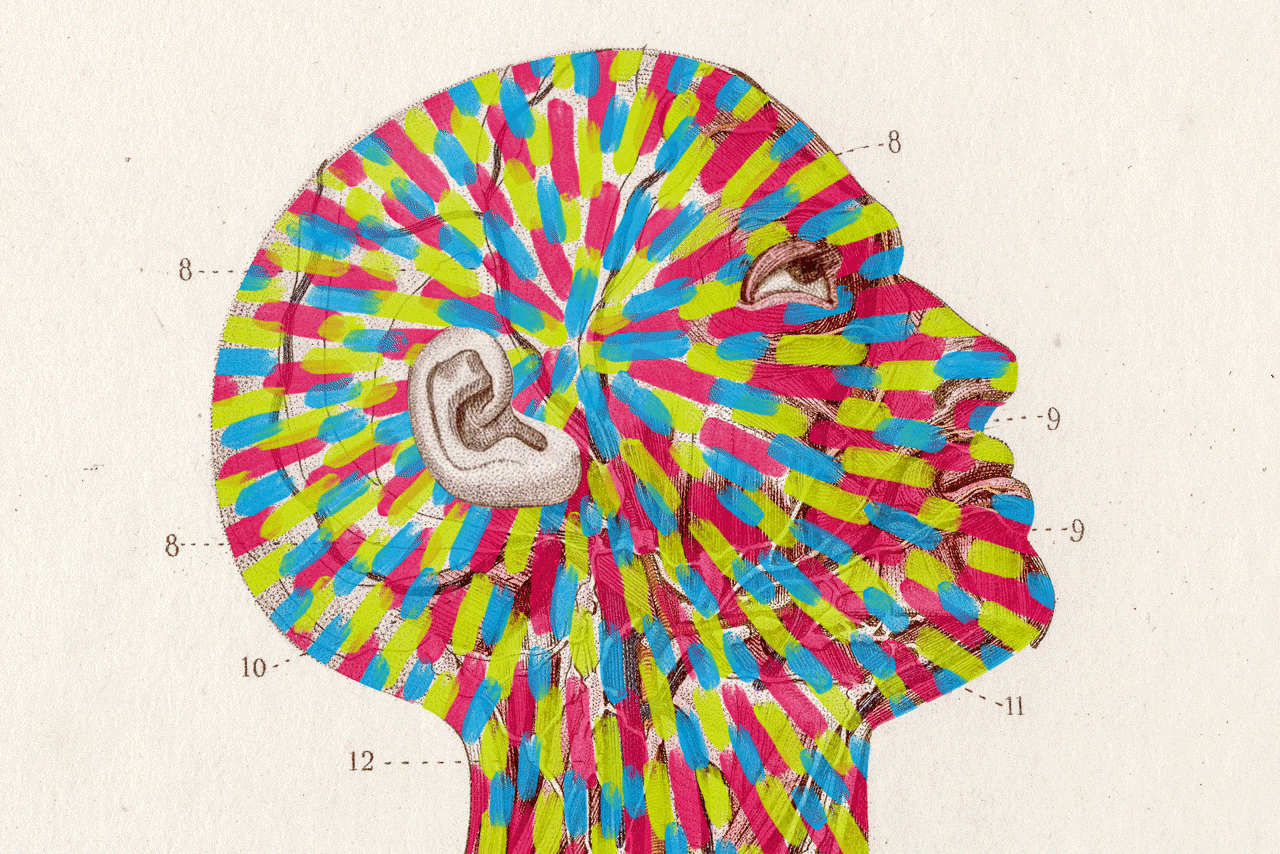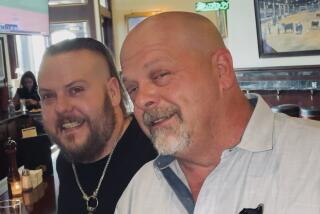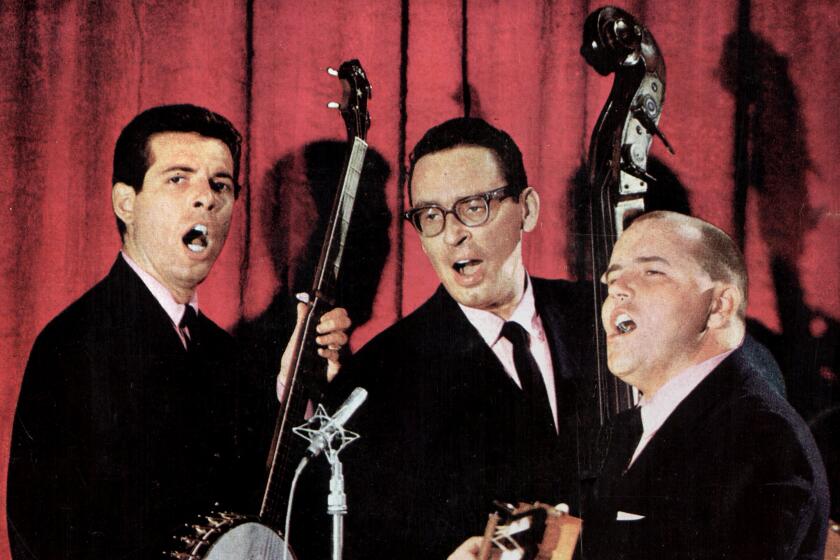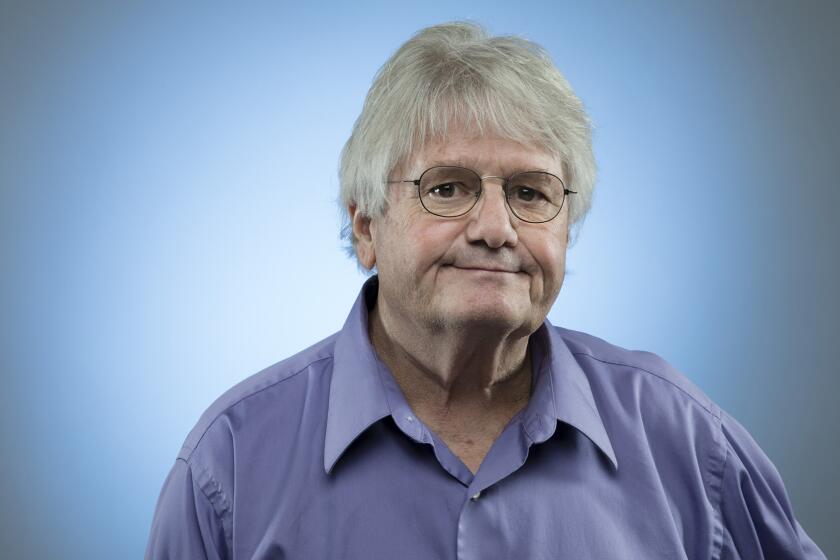Ronald Siegel, drug expert who believed people naturally like to get high, dies at 76
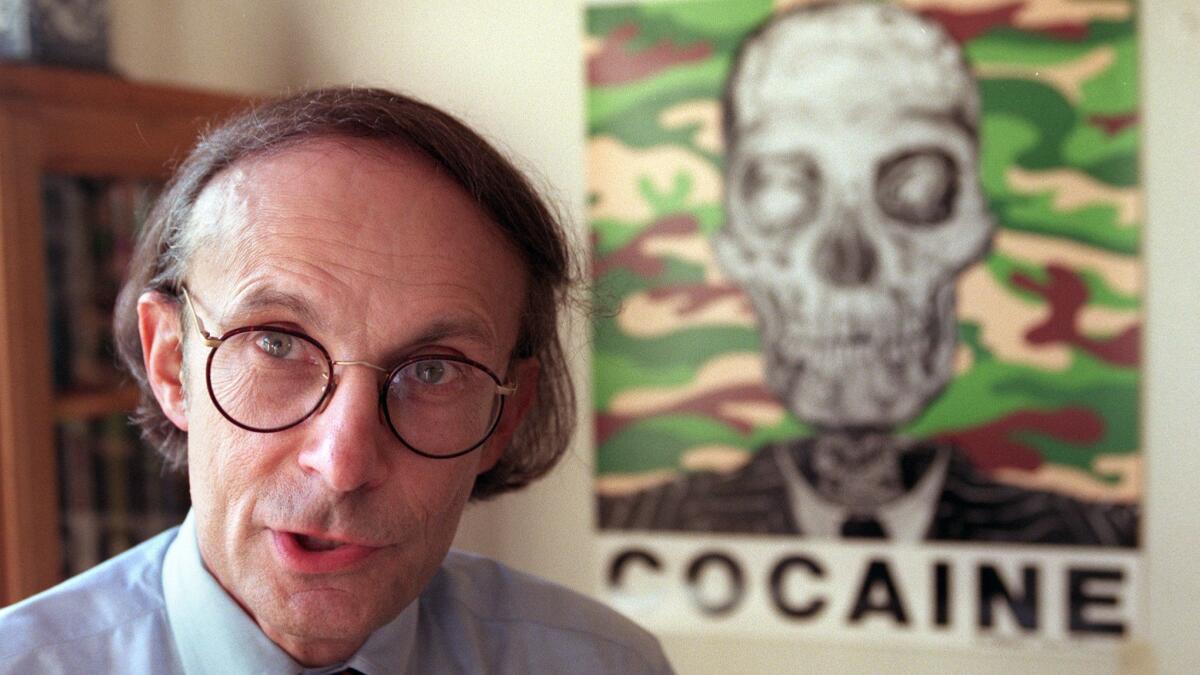
Ronald K. Siegel, a leading authority on psychoactive substances who believed the war on drugs was futile because the pursuit of intoxication — drugs, alcohol, psychotropic plants — is permanently and deeply embedded in the psyche of every human being, has died from complications of Alzheimer’s disease. He was 76.
Siegel, a research professor with the Department of Psychiatry and Behavioral Sciences at UCLA for more than 20 years, died March 24 at his home in Los Angeles, said Tom Pope, a longtime friend.
Through the ages and across the planet, humans have chased after mind-altering plants, alcohol and other mind-alerting substances with such persistence that the desire to get high was a basic human drive, right up there with hunger, thirst and sex, Siegel came to believe.
“In a sense, the war on drugs is a war against ourselves, a denial of our very nature,” Siegel wrote in “Intoxication — Life in Pursuit of Artificial Paradise,” his book on humankind’s fascination with mood-altering substances. He also wrote “Fire in the Brain” and “Whispers,” a book about paranoia.
Siegel was born Jan. 2, 1943, in Little Falls, N.Y., and graduated from Brandeis University. He later earned his doctorate at Dalhousie University in Halifax, Canada, where he experimented with the effects of LSD, marijuana and other drugs on pigeons and mice.
He said his interest in mind-altering drugs may have sprung from a boyhood trip to the dentist who gave him nitrous oxide, or “laughing gas” as it is sometimes known, as an anesthetic.
So began a career devoted to studying and observing the cultural extremes of drug use. He lectured across the country, served on presidential commissions and translated books on the subject that never before had been available in the U.S., including the German classic “Priestess of Morphine: The Lost Writings of Marie-Madeleine in the Time of Nazis” and “Keef: A Story of Intoxication, Love and Death.”
He traveled to Czechoslovakia to study insects that seemed to enjoy eating marijuana, watched jimsonweed-chewing buffalo on Maui and talked to Vietnam War vets who recalled watching water buffalo persistently nibbling on opium poppies — returning again and again to the poppy fields.
While doing post-doctoral work at Albert Einstein College of Medicine in New York, Siegel had been taught that humans are the only animals that deliberately intoxicate themselves. But he reached a different conclusion.
“Almost every species of animal has engaged in the natural pursuit of intoxicants,” he said.
Siegel said his own experiments with drugs — chewing coca leaves in Peru, for instance — was limited and, besides, he said, he never had any difficulty finding volunteers to experiment with drugs. His own drug of choice was coffee.
Cocaine, he said, is the most seductive drug on Earth and, more than marijuana, served as a gateway to the explosion of narcotic use in the U.S. in the second half of the 20th century.
Siegel’s research files also contained prescription records, historical accounts and correspondence on the drug and alcohol habits of the nation’s former presidents and leaders. President Andrew Johnson was rarely sober, for intance. Abraham Lincoln enjoyed chloroform, a recreational drug back in the day. And Ulysses S. Grant powered through his memoirs with the help of cocaine, Siegel found.
“The fact we once had drunks and addicts as president is not to say we made a poor choice in our candidates,” he said. “It’s just that they are representative of us.”
Siegel refused to take a stance on whether drugs now outlawed should be legalized. His position was that — legal or not — people would forever pursue them.
“They’re medicating themselves. They’re changing their mood. They’re changing the way that they feel,” he said. “These are legitimate medical uses.”
A marathon runner, Siegel met his future wife, Jane Barack, while running on the track at UCLA. Together they shared a love of travel, opera and UCLA basketball.
In addition to his wife, Siegel is survived by three stepchildren and six stepgrandchildren and a sister, Jaqueline Awerman.
More to Read
Start your day right
Sign up for Essential California for the L.A. Times biggest news, features and recommendations in your inbox six days a week.
You may occasionally receive promotional content from the Los Angeles Times.
